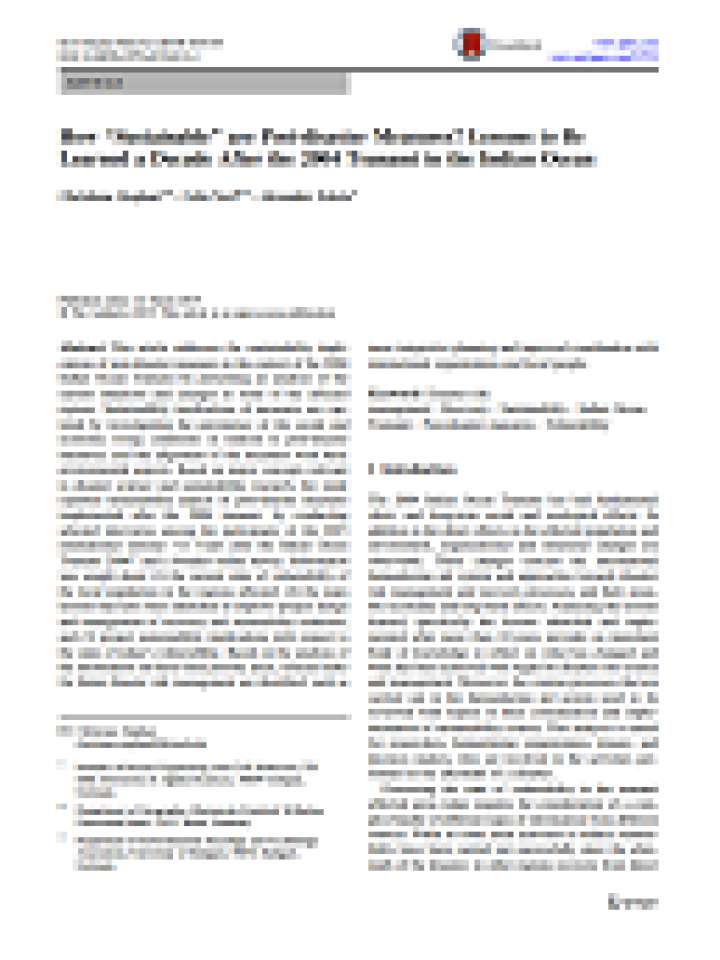How ‘‘sustainable’’ are post-disaster measures? Lessons to be learned a decade after the 2004 tsunami in the Indian Ocean
This article addresses the sustainability implications of post-disaster measures in the context of the 2004 Indian Ocean Tsunami by presenting an analysis of the current situations and changes in some of the affected regions. Sustainability implications of measures are captured by investigating the persistence of the social and economic living conditions in relation to post-disaster measures, and the alignment of the measures with basic environmental aspects.
Based on major concepts relevant in disaster science and sustainability research, the study explored sustainability aspects of post-disaster measures implemented after the 2004 tsunami, by conducting selected interviews among the participants of the 2015 international seminar “11 Years after the Indian Ocean Tsunami 2004” and a broader online survey. Information was sought about (1) the current state of vulnerability of the local population in the regions affected; (2) the main lessons that have been identified to improve project design and management of recovery and vulnerability reduction; and (3) project sustainability implications with respect to the state of today’s vulnerability. Based on the analysis of the information on these three priority areas, selected tasks for future disaster risk management are identified, such as more integrative planning and improved coordination with international organizations and local people.
International Journal of Disaster Risk Science, March 2017, Volume 8, Issue 1, pp 33–45
Explore further

